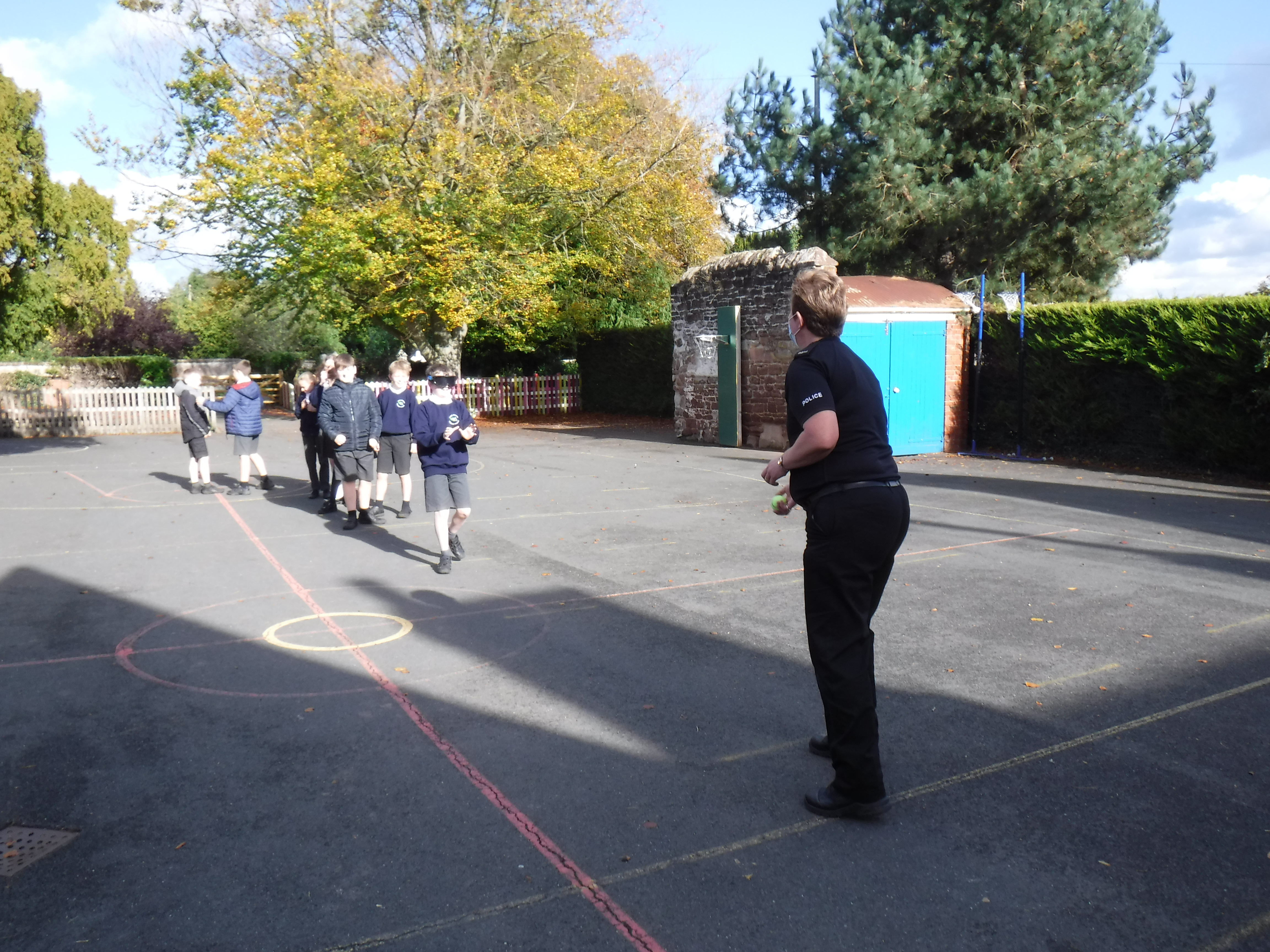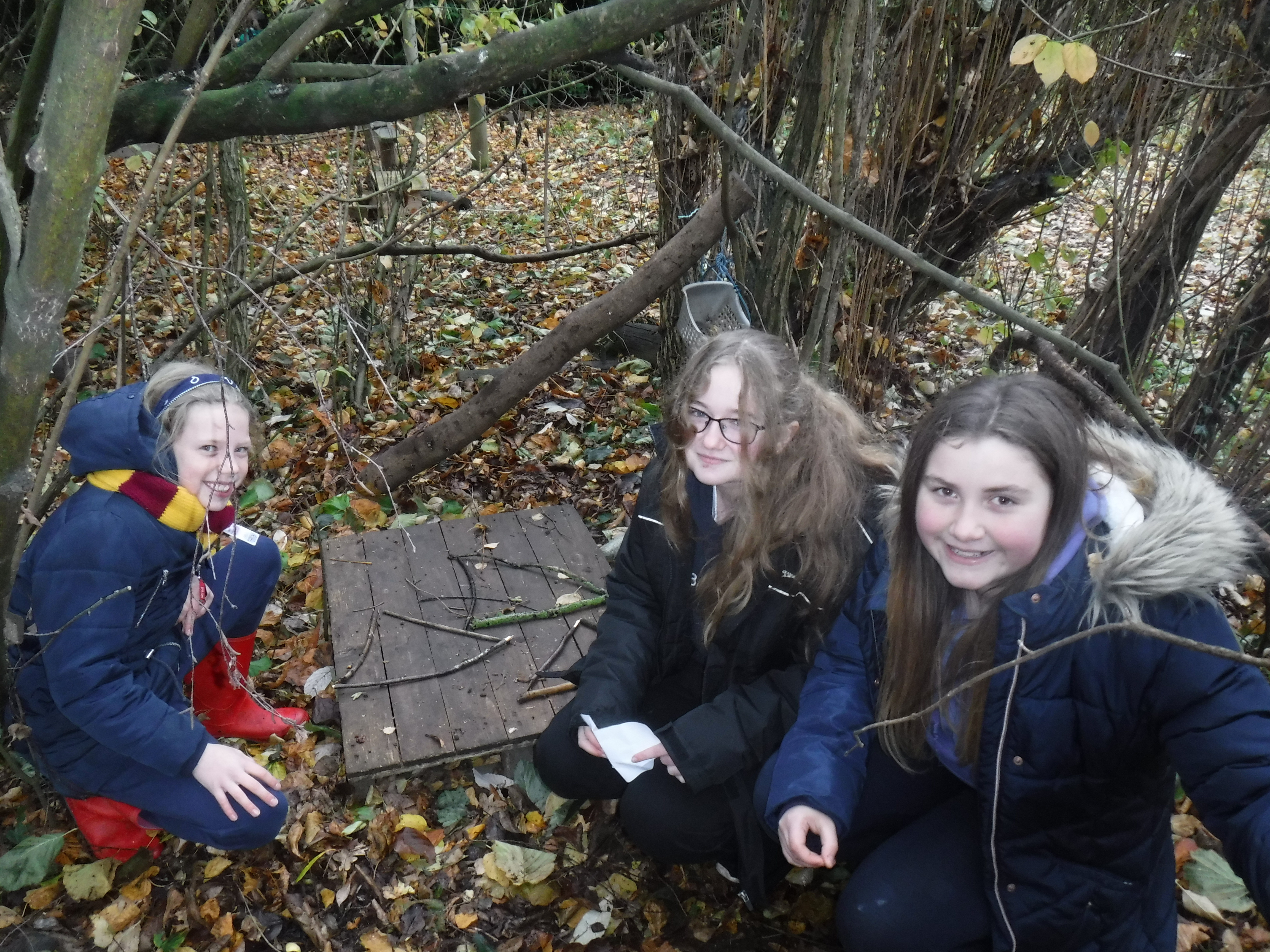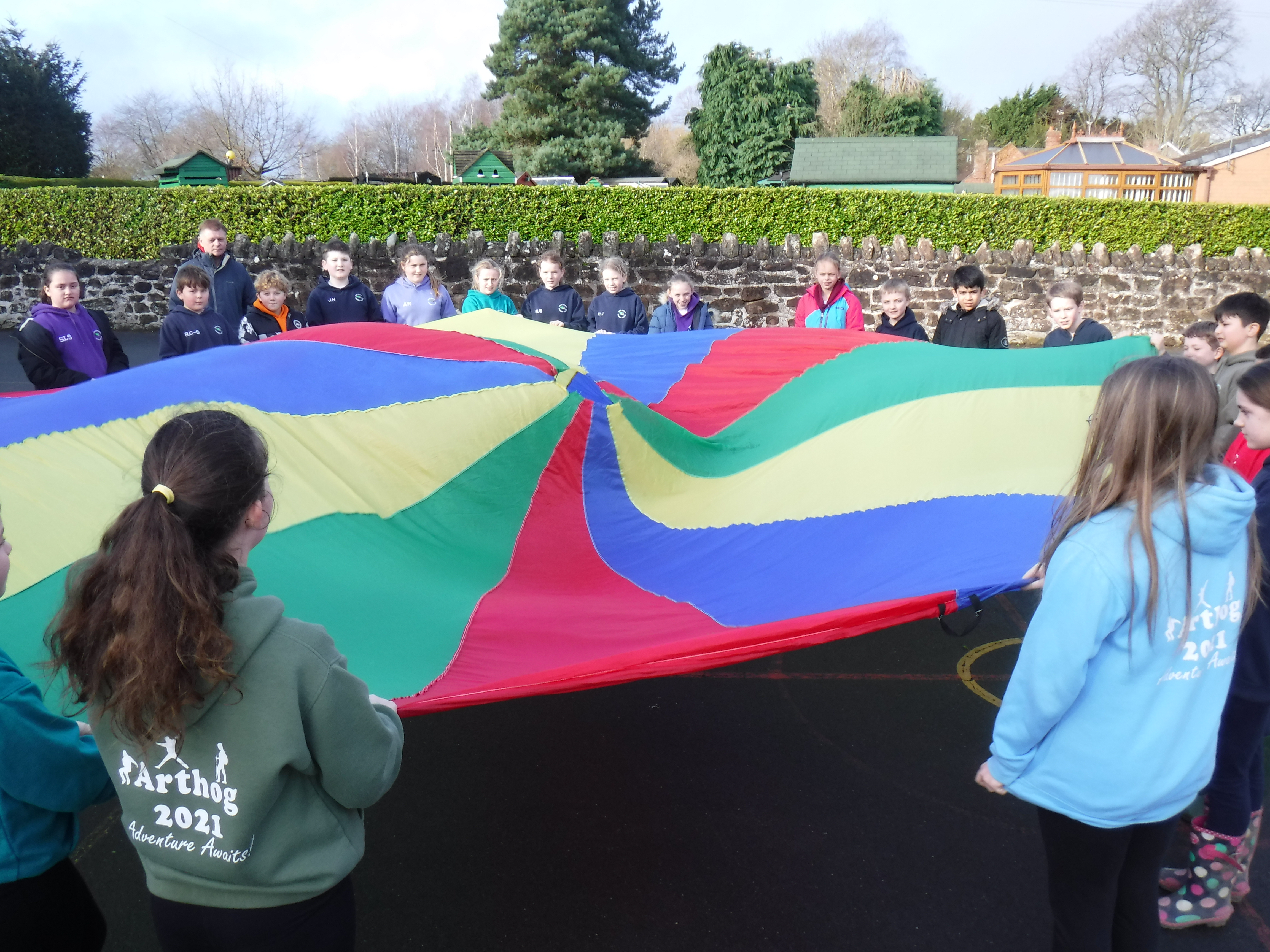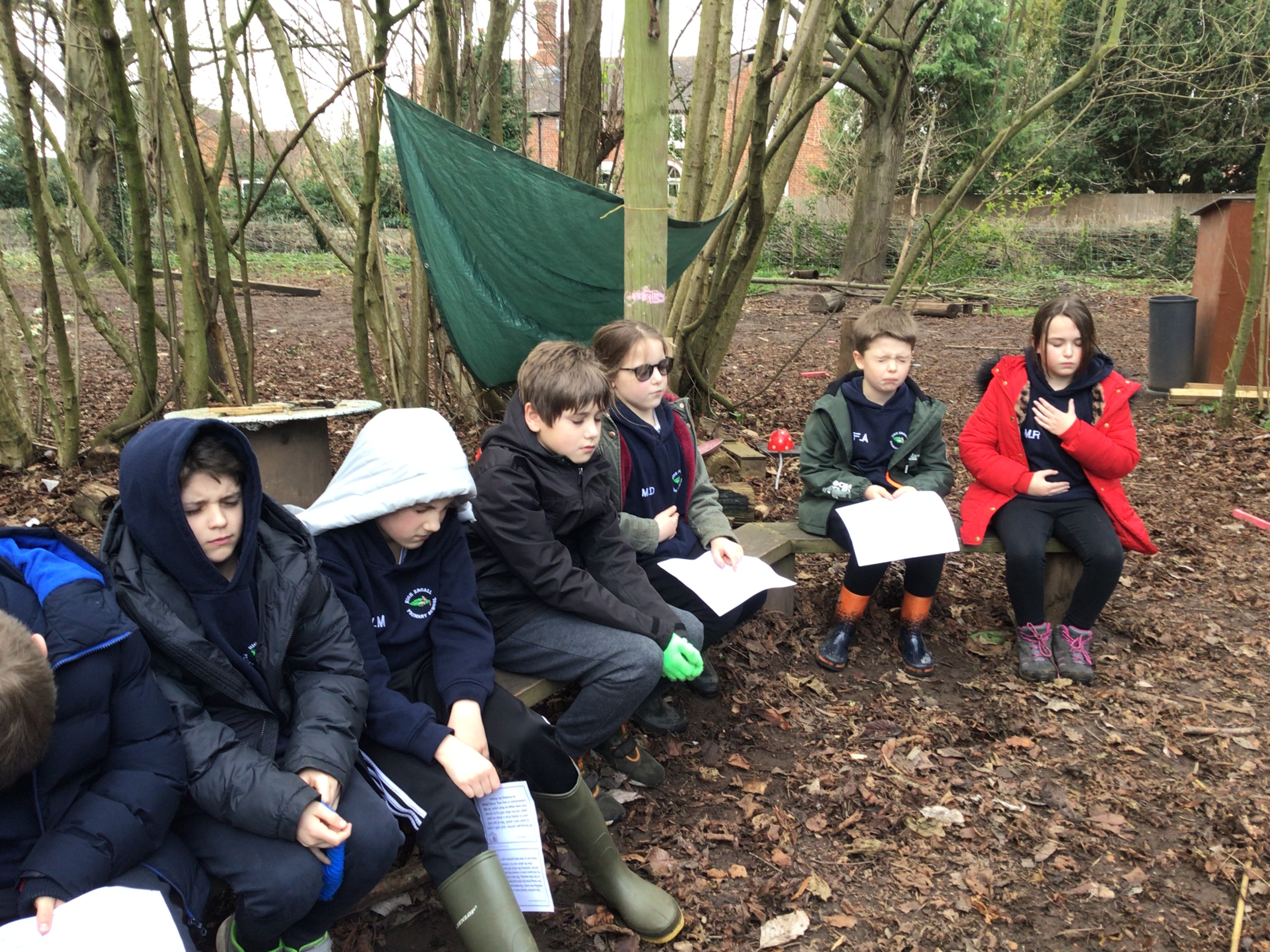RSE - Relationships and Sex Education PSHE - Personal, Social, Heath and Economic Education
The Relationships and Sex Education (RSE) statutory curriculum is taught through the PSHE curriculum as discussed below.
Intent
What does PSHE look like at High Ercall?
At High Ercall Primary School, the Relationships and Sex Education (RSE) statutory curriculum is taught through the PSHE curriculum. This is integrated within the wider school curriculum as it complements and overlaps with the ethos, values and key drivers of the school. Throughout the PSHE curriculum, we aim to equip children with the essential skills for life and intend to develop the whole child through carefully planned and resourced lessons. Through these lessons, children will learn how to stay safe and healthy, build and maintain successful relationships and become active citizens, responsibly participating in society around them. With the stressors encountered in an ever changing society, we provide our pupils with a secure understanding of the world around them and support them in seeing each and everybody’s value in society and to promoting strong and positive views of self. Our curriculum aims to cover a wide range of the social and emotional aspects of learning, enabling children to develop their identity and self-esteem as active, confident members of their community. The themes and topics support social, moral, spiritual and cultural development and provide children with protective teaching on essential safeguarding issues, developing their knowledge of when and how they can ask for help. As a result of this they will:
- Increase and develop their substantive knowledge of a variety of topics such as understanding emotions, relationships, goals, managing money, keeping safe, healthy lifestyles and the changing human body.
- Increase and develop their disciplinary knowledge in KS2 by gaining an understanding of how to manage emotions, form relationships, build resilience when setting goals and understand how to respond to their changing body. Children will have opportunities to make their own choices about how to do something and will be able to evaluate what they have learnt and tried and how to improve for their future.
PSHE lessons are supported by the Twinkl Life’s PSHE and Citizenship resources which are fully in line with the Learning Outcomes and Core Themes provided by the PSHE Association Programme of Study which is widely used by schools in England and is recommended and referred to by the DfE in all key documentation relating to PSHE provision in schools. This scheme of work covers all the required objectives and follows the three key concepts of Relationships, Health and Wellbeing and Living in the Wider World to ensure progression of knowledge. The scheme of work fulfils the requirements of 2020 Statutory Relationships and Health Education, setting these learning intentions in the context of a broad and balanced PSHE curriculum.
The 5Rs are revisited throughout PSHE lessons and many units support the schools key drivers. For example, the unit Aiming High focuses on building resilience and Diverse Britain focuses on respecting others. Outdoor learning is encouraged through units such as TEAMs, allowing children to reflect on their choices and develop teamwork skills.
Implementation
How is the PSHE curriculum organised?
Children will be taught in thematic units which children will revisits in both KS1 and KS2. This enables children to recall and build upon prior learning, exploring the underlying principles of PSHE education regularly at a depth that is appropriate for the age and stage of the child. Each lesson begins with a discussion of children’s existing knowledge and experience, providing an opportunity for baseline assessment. Each lesson ends with an opportunity to consolidate and reflect upon learning. To teach the PSHEcurriculum effectively, teachers employ a variety of methodologies, such as role play, discussions, debates, scenario cards and games. Although each unit is planned on a termly basis, there may be occasions where specific units may be taught reactively based on school incidents and pupil needs. The three core areas will be taught each year, including Relationships, Health and Wellbeing, and Living in the Wider World.
- Relationships
Children at High Ercall are taught how to build and maintain successful relationships and become active citizens. This includes maintaining healthy relationships with friends, families and promoting strong and positive views of self. By the end of their primary education, they will be equipped with the skills to identify people who care for them; know what constitutes a healthy, happy and respectful relationship; understand that relationships may vary and know how to seek help if a relationship is making them feel uneasy. These units include Digital Wellbeing, TEAM, VIPs and Be Yourself.
- Health and Wellbeing
Children at High Ercall will know to stay safe in different situations including: stranger danger and drug awareness (embedded through the STAR programme and delivered by Police Community Liaison Officers); know that their body belongs to them and the appropriate boundaries; how to act appropriately to adults and how to report concerns and abuse. These units include Safety First, Think Positive and It’s My Body.
- Living in the Wider World
With the stressors encountered in an ever changing society, pupils will learn and respect cultural diversity; know that change is part of growing up and how to develop an emotional resilience to new experiences, and know about career choices and economic understanding. We provide our pupils with a secure understanding of the world around them and support them in seeing each and everybody’s value in society. These units include Aiming High, Diverse Britain, One World and Money Matters.
How do we teach PSHE?
The main delivery of sex education is through PSHE lessons, some aspects are also taught through other subject areas such as science and physical education. We use the Shropshire Respect Yourself, SE programme. This teaches children to understand and respect themselves and their bodies as part of a healthy lifestyle approach. The SE topic has three sections; Choices and Challenges, Changes and Care and Commitment. In year 5 and 6, there is a greater emphasis on the changes that occur in puberty. Pupils are taught about relationships and encouraged to discuss issues. We teach the parts of the body, using the correct terminology, how these work and how we change as we grow. We encourage children to ask for help, providing reassurance that change is part of life’s cycle. To support the pupils’ mental health and wellbeing we use some activities from the Tina Rae, ‘A Toolbox of Wellbeing’ resources.
In science lessons in Key Stage 1, the children are taught about how humans change and grow. The focus is on changes and growing, keeping our bodies and ourselves healthy and safe. For this aspect we follow the guidance material in the national scheme of work for science. In Key Stage 2, we teach about life processes and the main stages of the human life cycle in greater depth.
The impact of the curriculum offer and pupil progress is monitored by the PSHE subject leader, senior management and governors. This is facilitated through discussion with the children and book scrutiny, which evaluates the pitch, coverage and progress over a given time. Through lesson observations, the pedagogy and quality of teaching and learning can be assessed. As part of the school’s monitoring cycle, governors are encouraged to talk to pupils about their learning. These are shared in full governors’ meetings and contribute to monitoring and planning. Attendance, exclusion and incident data is also reviewed as an indicator of the effectiveness of the PSHE curriculum and the sequence of teaching may be adjusted to reflect this. Use of ‘quick quizzes’ and mind maps to ensure children are revisiting prior learning to enable them to build a schemata of knowledge therefore enabling them to know more and remember more. The four principles of memory (Education Inspection Framework) are also taken into consideration: what content pupils need to know, what they pay attention to, avoiding overload, and allowing for practice.
How do we support our SEND learners?
We believe that all learners should primarily access the first quality teach and be immersed in class discussions during PSHE lessons. Therefore, SEND learners access the same learning as all other children but will be given further support, adapted outcomes and a tailored approach to suit each individual’s needs. Strategies used to support our SEND learners include:
- An adult to support during group activities such as role play and discussion of scenarios
- Mixed ability groups/partners and well chosen roles assigned within tasks
- Print outs of work/presentations to scaffold with independent tasks
- More time allocated to process information or instructions broken down into manageable chunks.
This is monitored by our SENDCO - Sarah Roberts - and parents are fully engaged and involved.
Impact
At High Ercall, children are enabled to develop the vocabulary and confidence needed to clearly articulate their thoughts and feelings in a climate of openness, trust and respect, and know when and how they can seek the support of others. They will apply their understanding of society to their everyday interactions, from the classroom to the wider community of which they are a part. We support the active development of a school culture that prioritises physical and mental health and wellbeing, providing children with skills to evaluate and understand their own wellbeing needs, practise self-care and contribute positively to the wellbeing of those around them. Successful PSHE education can have a positive impact on the whole child, including their academic development and progress, by mitigating any social and emotional barriers to learning and building confidence and self-esteem. Evidence suggests that successful PSHE education also helps disadvantaged and vulnerable children achieve to a greater extent by raising aspirations and empowering them with skills to overcome barriers they face. The PSHE curriculum aims to positively impact wellbeing, safeguarding and SMSC outcomes. This can ensure that all children are able to develop the knowledge, skills and attributes they need to succeed at school and in the wider world.
A recent review of PSHE reported:
'Pupils could identify lessons they enjoy in school. They feel that they are given clear roles of responsibility.'
'Pupils are reminded about the school vision for them and know and understand the fundamental British Values through a range of assemblies and accessible posters around the school.'
'Pupils feel that behaviour is good at High Ercall and articulated consistent approaches to sanctions and rewards. Adults are quick to deal with any negative behaviour that occurs so that everyone can learn and play safely and happily.
'Pupils are clear about the definition of and different forms of bullying and feel that is no bullying in school.'
'Pupils were clear about who to go to if they needed help or support. They could identify ways in which the curriculum keeps them safe and healthy.'
Recent Pupil Voice (Dec 2023) reported:
'We learn about lots of different people and families. Our reading assemblies have been about differences like parents, what we look like and what we believe in' - Year 5 pupil
'Behaviour is really good because people are kind and enthusiastic and the older children set a good example for the younger children. The teachers are always there to help you.' - Year 6 pupil
All of our staff, senior leaders and governors are involved in measuring the impact of our PSHE curriculum in differing ways.




